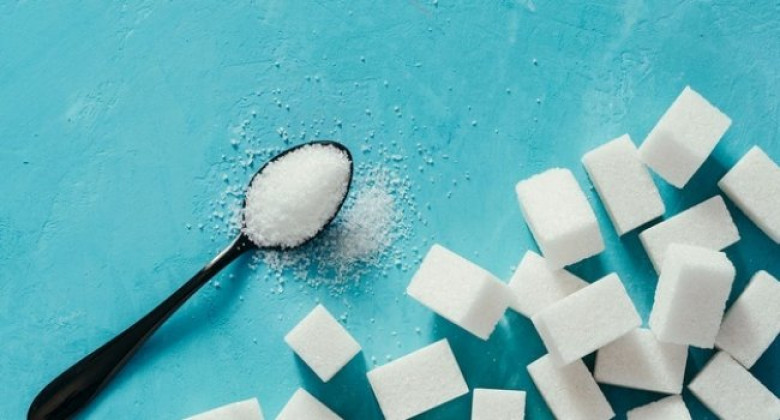How does sugar in diet affect teen memory?

Frequent consumption of sugar-sweetened beverages during adolescence is very dangerous, American scientists noted.
In a rodent model, it was shown that frequent consumption of sweets decreases learning performance and weakens the process of memorization in adulthood.
Changes in the gut bacteria Parabacteroides may be the key to sugar-induced memory impairment, Medical Express reports. Sugar consumed at an early age has been found to increase the level of Parabacteroides. And the higher the level of Parabacteroides, the worse the animals performed on memory tests. The hippocampus - the brain's memory center - still develops in late adolescence, the researchers noted.
As part of the experiment, young rats were given regular food and an 11% sugar solution, which is comparable to the sugar-containing drinks available today. Then the animals passed a memory test - episodic contextual memory was assessed - memorization of the context in which the animals had previously seen a familiar object. It turned out that rats that consumed sugar at an early age had impaired ability to identify that an object was new to a particular context.
Another test assessed basic recognition memory, a memory function independent of the hippocampus, implying the ability of animals to recognize what they have seen previously. In this task, it turned out that sugar no longer affected this type of animal memory. Additional analyzes showed that heavy sugar consumption led to an increase in the concentration of Parabacteroides in the intestinal microflora. When the concentration of these bacteria was artificially increased in animals that had never consumed sugar, both hippocampal-dependent and hippocampal-independent memory systems were impaired.

 Վճարումների հնարավորությունների կարևոր փոփոխություն Team Telecom Armenia-ի բաժանորդների համար
Վճարումների հնարավորությունների կարևոր փոփոխություն Team Telecom Armenia-ի բաժանորդների համար
 Մենք կլուծենք գործազրկության խնդիրը և կկտրենք փոքր բիզնեսի կախվածությունը կառավարությունից
Մենք կլուծենք գործազրկության խնդիրը և կկտրենք փոքր բիզնեսի կախվածությունը կառավարությունից
 Երևանի նախկին քաղաքապետ, ՀԾԿՀ նախագահ Ռոբերտ Նազարյանի աշխատանքային գործունեությունը
Երևանի նախկին քաղաքապետ, ՀԾԿՀ նախագահ Ռոբերտ Նազարյանի աշխատանքային գործունեությունը
 Արբիտրաժային կազմը մերժել է Հայաստանի այն փաստարկները, ըստ որոնց՝ ՀԷՑ-ին վերաբերող վեճի նկատմամբ արտ...
Արբիտրաժային կազմը մերժել է Հայաստանի այն փաստարկները, ըստ որոնց՝ ՀԷՑ-ին վերաբերող վեճի նկատմամբ արտ...
 Խնդիրները ի հայտ են գալու ընտրություններից հետո․ Էդմոն Մարուքյան
Խնդիրները ի հայտ են գալու ընտրություններից հետո․ Էդմոն Մարուքյան
 Առաջարկը ընդունված է. Աշոտ Ֆարսյան
Առաջարկը ընդունված է. Աշոտ Ֆարսյան
 Հարություն Մկրտչյանը ներողություն կխնդրի Սամվել Կարապետյանից
Հարություն Մկրտչյանը ներողություն կխնդրի Սամվել Կարապետյանից
 Վահագն Ալեքսանյան, կարո՞ղ ա մոռացել ես, որ ձեր ՔՊ-ական կառավարության 7 տղամարդ նախարարից 5-ը չեն ծ...
Վահագն Ալեքսանյան, կարո՞ղ ա մոռացել ես, որ ձեր ՔՊ-ական կառավարության 7 տղամարդ նախարարից 5-ը չեն ծ...
 «Սամվել Կարապետյանի 5 քայլերը դեպի Ուժեղ Հայաստան» տնտեսական ծրագիրն այսօր «Մեր ձևով» շարժման մասնակ...
«Սամվել Կարապետյանի 5 քայլերը դեպի Ուժեղ Հայաստան» տնտեսական ծրագիրն այսօր «Մեր ձևով» շարժման մասնակ...
 Փաշինյանի հակաեկեղեցական կոալիցիան ճաքեր է տալիս
Փաշինյանի հակաեկեղեցական կոալիցիան ճաքեր է տալիս































